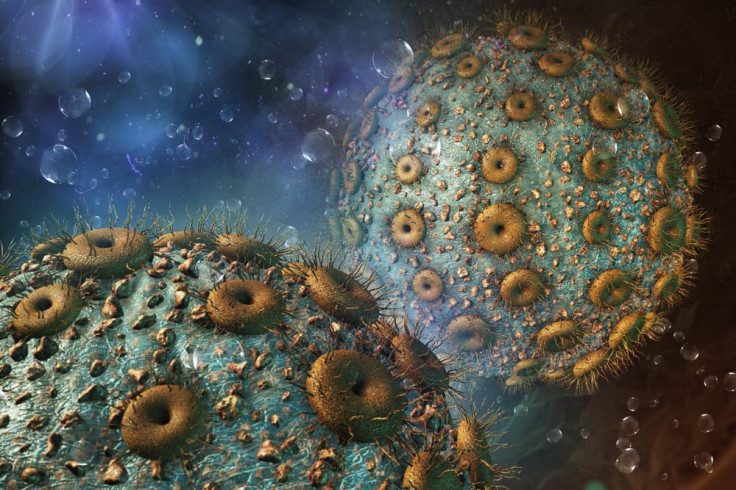AIDS Mystery Solved: 2 US Studies Show How HIV Progresses To Final Stage

A set of breakthrough studies from U.S. scientists reveals for the first time the fundamental biological mechanism whereby HIV unravels the body’s defenses and causes AIDS, setting the stage for a new generation of sophisticated interventions and preventative treatments.
For decades, the scientific community has tried to understand how an HIV infection progresses into its final stage. According to Warner Green, a biomedical researcher and head of the lab that produced the new results, most inquiries have focused on the loss of CD4 T-cells — a class of white blood cells that are decimated during the pathogen’s viral replication. "Our papers deal with the fundamental issue that causes AIDS, and that is the loss of CD4 T-cells," he said, speaking to Reuters.
Green and his colleagues have shown that, rather than a systemic onslaught of viral particles, the CD4 T-cell massacre is largely caused by a fiery reaction called pyroptosis. The process, which is essentially violent form of cell suicide, occurs when a passive “bystander” CD4 T-cell detects a viral event. Even though the immune cell’s passive state precludes the HIV virion from hijacking it and replicating itself, the damage is already done, and the cell is forced to set off an inflammatory chain reaction. "The cell is committing suicide in a vain attempt to protect the host," Greene explained. "The abortive process releases a call for help from new CD4 cells, who then fall victim to this fiery death."
From this, it follows that the depletion of CD4 T-cells can be thought of as an indirect consequence of the infection. It would appear that most immune cells do not die as a result of viral hijacking but by their own hand. "This idea that CD4 depletion is more of a cellular suicide than it is a murder by the virus is a new and important concept," Green said.
The discovery of this “cell death pathway” illuminates a promising new target for antiretroviral drugs. Intriguingly, one experimental anti-inflammatory drug developed by Vertex Pharmaceuticals already incorporates this mechanism. The drug, which has been tested on people with epilepsy, could represent a crude version of an effective new HIV/AIDS treatment.
"We would like to see if that drug could be repurposed to prevent inflammation in CD4 T-cell loss in HIV infection," Greene told reporters. His research lab at Gladstone Institutes in San Francisco is currently in talks with Vertex regarding access to the experimental drug. If a renewed clinical trial proves successful, it would undoubtedly brighten the outlook for the millions of people currently living with advanced forms of the disease.
Sources:
Monroe K, Yang Z, Johnson J, Geng X, Doitsh G, Krogan N, Greene W. IFI16 DNA Sensor Is Required for Death of Lymphoid CD4 T Cells Abortively Infected with HIV. Science. [published online December 19, 2013]
Doitsh G, Galloway N, Geng X, Yang Z, Greene W. Cell death by pyroptosis drives CD4 T-cell depletion in HIV-1 infection. Nature. 2013.
Published by Medicaldaily.com



























